The rise of remote work, cloud adoption, and the increasing complexity of cyber threats have forced many organizations to reconsider their network security approach. The secure access service edge (SASE) is one of the best approaches, as it offers a unified network and security framework through the integration of SD-WAN and cloud-native security features, such as secure web gateway, cloud access security brokers, firewall-as-a-service and zero trust. These ensure that modern organizations have scalable, agile and secure network access.
With many SASE platforms crisscrossing the market, we decided to review the best of them, covering their key features, strengths and shortfalls.
Best Secure Access Service Edge Platforms comparison table
This table captures some features and pricing of the SASE platforms covered in this guide.
Best Secure Access Service Edge Platforms
Each of these platforms include the standard SASE features. However, here’s a detailed description of some of their key features, and pros and cons.
Zscaler Zero Trust Exchange: Best for AI-powered security service edge

Zscaler Zero Trust Exchange is a cloud-native platform built on Zero-Trust SD-WAN and AI-powered security service edge (SSE). It enables secure access to applications and resources regardless of location—on-premises, in public/private clouds or SaaS applications. Capabilities offered include least-privileged access for users, devices, workloads and business partners. Zscaler’s centralized platform enables organizations to enforce consistent security policies and gain visibility and control over their network traffic.
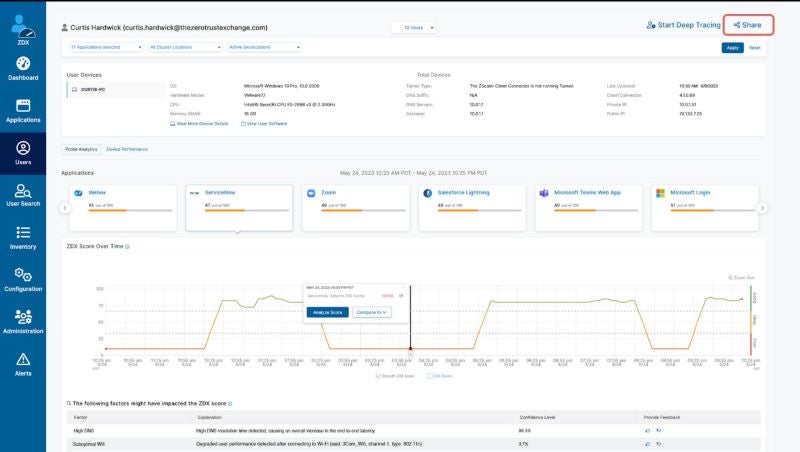
Why we chose Zscaler
Zscaler Zero Trust Exchange was chosen for its simplified security that integrates Zero Trust SD-WAN, AI-powered SSE and a streamlined administration that ensures secure connectivity while reducing risk and complexity.
Pricing
Contact vendor for demo and pricing.
Features
- Zero Trust SD-WAN integration.
- AI-powered SSE platform.
- Zscaler zero trust exchange.
- Single-vendor SASE framework with proxy-based architecture.
- Simplified administration.
Pros
- Integrates advanced AI technologies for improved threat detection.
- Provides secure connectivity for users, sites, IoT/OT devices, and cloud services.
- Offers improved SASE user experience.
- Reduces risk, cost and network complexity.
- Offers unified security and network access.
Cons
- No free trial.
- Existing system compatibility not explicitly stated on website.
- Might present a potential dependency on a single vendor for SASE framework.
Cisco Secure Connect: Best for unified network security
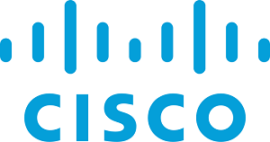
Cisco Secure Connect is a cloud-based security solution that combines multiple network security functions, such as secure web gateway, SD-WAN, ZTNA, DNS-layer security and cloud access security broker (CASB), into a single service. Cisco SASE is forged under these core offerings: Cisco Secure Connect for connecting people and applications, Cisco Secure Access for protecting the workplace, Cisco Umbrella for cloud end-to-end visibility and Cisco Catalyst SD-WAN for WAN optimization. Cisco’s approach to SASE may be useful for businesses looking to simplify their network security and improve their security posture under one platform.
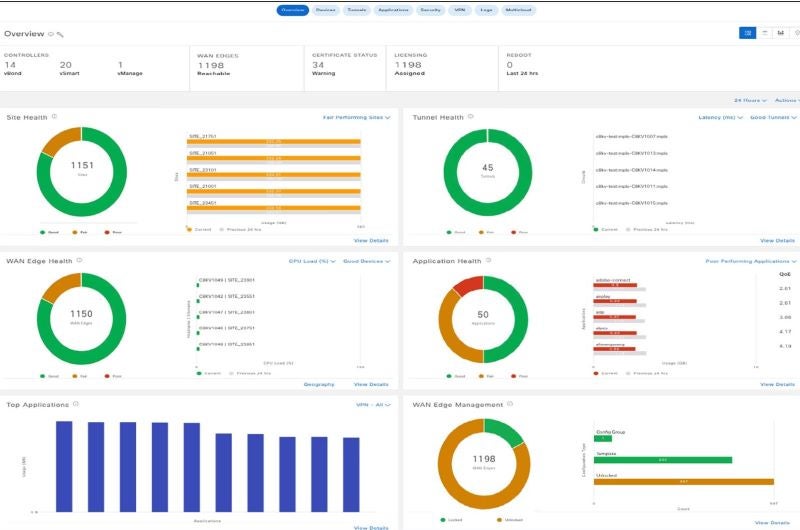
Why we chose Cisco
Cisco was chosen for its simplified and unified approach to network security, which is ideal for both small and large business enterprises.
Pricing
Contact vendor for pricing.
Features
- Cisco Catalyst SD-WAN for centralized network control.
- Zero-Trust Network Access (ZTNA).
- Cisco Umbrella for end-to-end visibility.
- Cisco Secure Access for workforce security.
- Single vendor consolidation for streamlined operations.
Pros
- Ensures client-based secure remote work.
- Provides cloud end-to-end visibility.
- Simplifies network security using a single vendor.
- Offers Layer-7 cloud-delivered firewall + IPS, depending on plan.
- Centralized network management.
Cons
Prisma Access: Best for automated SASE implementation

Palo Alto Networks’ Prisma Access SASE is a cloud-native platform that leverages AI to provide network security running on Zero Trust principles. Its SASE offering includes a web gateway, firewall as a service and Zero Trust Network Access capabilities. Leveraging the advanced ZTNA 2.0, Prisma SASE is designed to safeguard access to resources and protect applications and data traffic from cyber threats. Furthermore, it expands Zero Trust to branch locations through Prisma SD-WAN, offering a unified platform integrating various security products into a single networking and security stack. With its embedded AI Operations (AIOps) into SASE, alongside Autonomous Digital Experience Management (ADEM), IT teams can automate complex manual operations using AI-driven problem detection and predictive analytics.
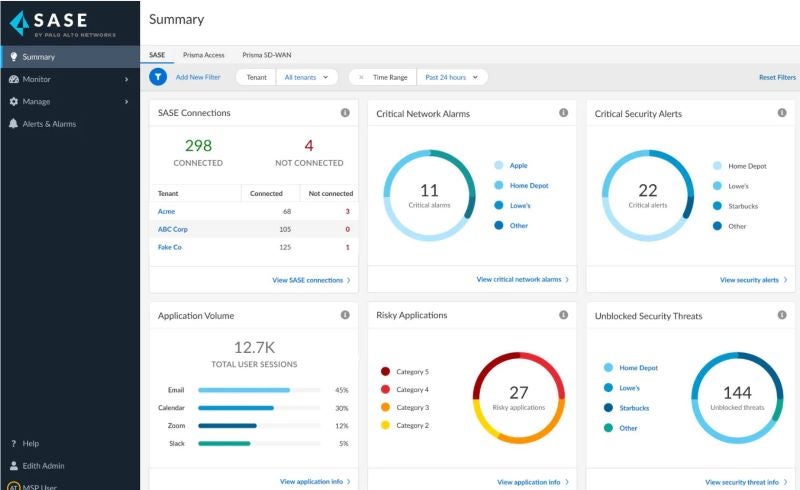
Why we chose Prisma Access
Prisma Access made it to our list due to its advanced capabilities that help with automated SASE implementation.
Pricing
For demo and pricing, contact the vendor.
Features
- Cloud secure web gateway.
- ZNTA 2.0.
- Next generation CASB.
- Branch and Prisma SD-WAN.
- Autonomous digital experience management (ADEM).
Pros
- Uses Prisma SD-WAN to extend Zero Trust to branch locations.
- Integrates AI Operations (AIOps) into SASE with ADEM.
- 30-day free trial.
- Its scalability accommodates business needs and growth.
- Enhances user experience with its seamless data and application access.
- Provides centralized management and policy enforcement.
Cons
Netskope SASE: Best SASE visibility and reporting

Netskope offers an integrated SASE solution that combines several network security functions. The platform encompasses an SWG, cloud access security broker (CASB), ZTNA, cloud security posture management, next-generation firewall (NGFW), data loss prevention, and user and entity behavior analytics. Additionally, it offers a single management console as part of its SASE model, a borderless SD-WAN and a Ticket Orchestrator tab to view all user activity on the platform.
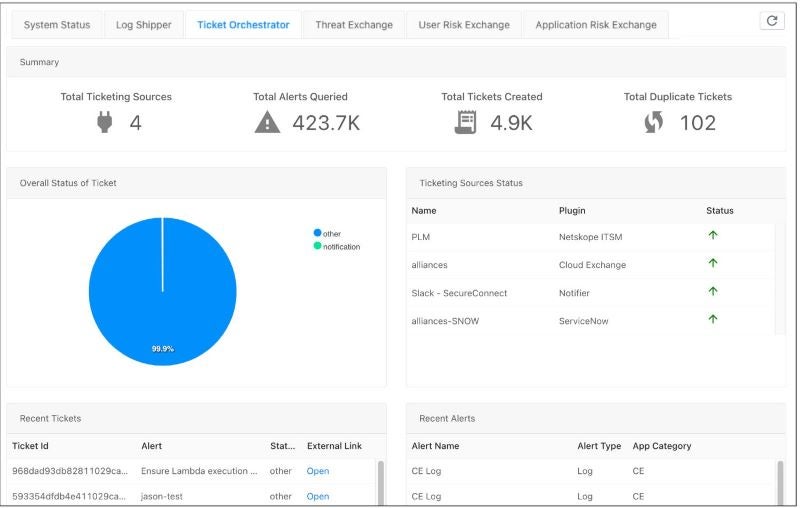
Why we chose Netskope Security Cloud
We selected Netskope for its comprehensive cloud security suite and ability to integrate intelligent SSE with borderless SD-WAN, making it a robust single-vendor SASE solution.
Pricing
For a custom demo and/or pricing information, contact the vendor.
Features
- Netskope Private Access.
- Cloud-native architecture.
- User and entity behavior analytics.
- Single management console.
- Netskope borderless SD-WAN.
Pros
- Provides comprehensive visibility and reporting.
- Addresses device posture and device risks.
- Offers data loss prevention.
- High scalability and performance.
- Offer a single lightweight software for SASE.
Cons
- Its use of shared egress IP provides less granular control over security policies and traffic management.
Cloudflare: Best for network traffic analysis
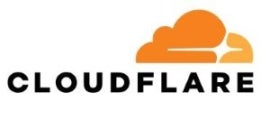
Cloudflare’s SASE platform is built on the zero-trust model to provide security between users and sites, and also between users and applications. Utilizing adaptive controls, Cloudflare’s SASE is designed to scrutinize each request and connection according to its sensitivity level. The solution features WARP, DNS filtering and resolver, Magic transit, Cloudflare network interconnect (CNI), network firewall, and other technologies for data control within SaaS applications. Additionally, it offers cloud email security, a smart routing technology (Argo), CDN (for data protection), network activity logging and an isolated browser specifically designed to handle potentially risky sites.
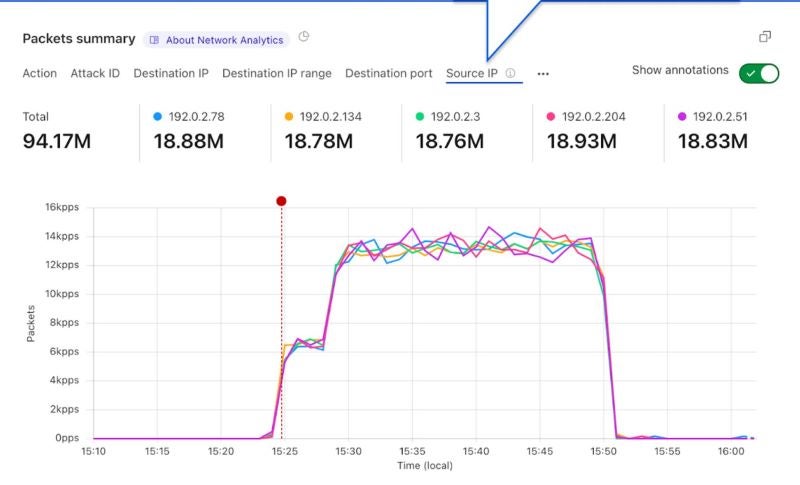
Why we chose Cloudflare One
Cloudflare’s SASE platform stands out for its activity logging capability, which is featured across its plans.
Pricing
The solution has three plans. They are;
- Free: This version offers basic network security controls.
- Pay-as-you-go: $7/user/month (billed monthly and suitable for a team of over 50 users).
- Contract Plan: This plan is billed annually and is suitable for organizations with security transformation needs and enterprise support services. Contact the vendor for a custom quote.
Features
- Cloud email security (available as an add-on)
- Network Analytics.
- DNS filtering and resolver.
- Cloudflare Network Interconnect (CNI).
- Remote Browser Isolation (available as an add-on)
Pros
- Offers integrated DDoS protection.
- Comes with a free plan.
- Provides comprehensive traffic analytics.
- Offers a vast network of data centers worldwide.
- Has a robust content delivery network.
- Provides remote browser isolation (RBI).
Cons
- Does not offer enterprise support services to the pay-as-you-go subscribers.
- Limited free version.
Fortinet SASE: Best for SASE delivery via one OS

Fortinet’s SASE solution, known as FortiSASE, aims to provide secure and streamlined access to web, cloud, and applications for a hybrid workforce. It merges the capabilities of an SD-WAN with FortiSASE’s cloud-based security service edge SSE, extending the convergence of networking and security from the network edge to remote users. The solution offers secure internet access, secure corporate access, firewall-as-a-service, ZTNA and secure SaaS access, and can be run on a single operating system (FortiOS) with one agent via a single console. FortiSASE also offers advanced threat protection, real-time analytics, and centralized management, simplifying organizations’ network security architecture.
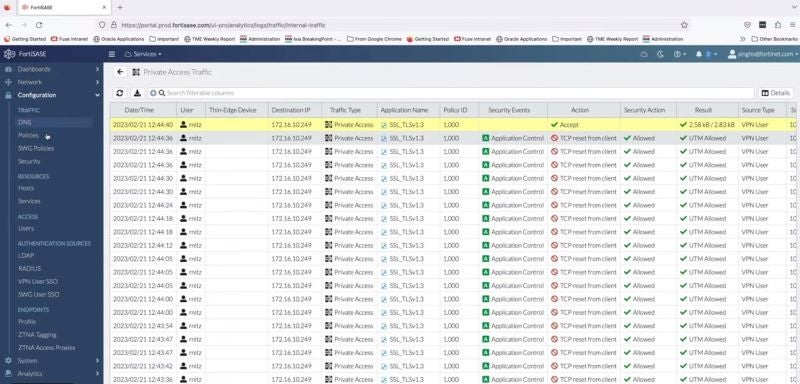
Why we chose FortiSASE
FortiSASE was chosen for its innovative SASE delivery through a single operating system which makes for easy SASE management.
Pricing
Contact the vendor for a custom quote.
Features
- Performance optimization.
- FortiSASE cloud-delivered security service edge.
- Digital experience monitoring (DEM).
- Single console management.
- FortiGuard AI-powered security services.
Pros
- Provides full visibility and easy management.
- Offers SaaS application monitoring.
- Provides risk assessment and policy enforcement with dual-mode CASB.
- Offers high performance and scalability.
Cons
- No free trial for FortiSASE.
- With so many built-in integrations and consolidations, integrating with existing systems may pose a challenge.
How do I choose the best SASE platform for my business?
While choosing the best SASE platform is dependent on the needs of your organization, you should look closely at factors such as cost, security or even seamless integration with existing systems. If your needs border on a simplified and adaptive security that ensures tailored protection and efficiency, FortiSASE may be your best bet. If your needs revolve around finding a platform that will offer an isolated browser, then Cloudflare SASE may be an ideal choice. If you need a single-vendor SASE with borderless SD-WAN, Netskope is a great choice.
Methodology
This review was based on extensive research and data garnered from the vendors’ websites and datasheets, as well as insights obtained from user feedback. After considering many factors such as market standing, popularity and critical SASE capabilities covered, I limited my review to these products, as they meet the above criteria. I also supplemented my research with video demos provided by some of the vendors. While it wasn’t first-hand experience, it gave me an opportunity to explore characteristics such as usability, deployment options and integration capabilities.

